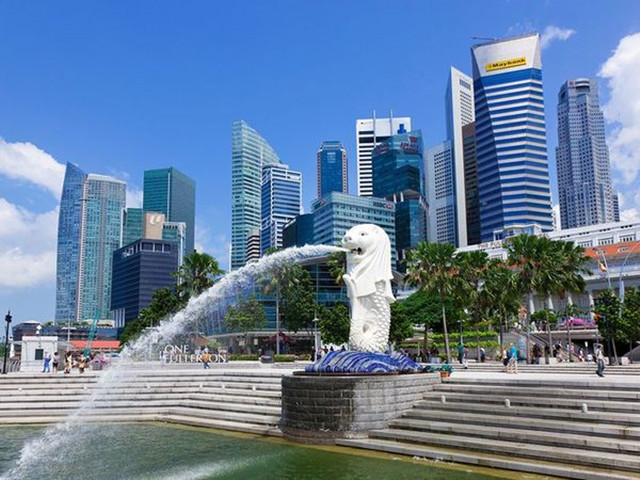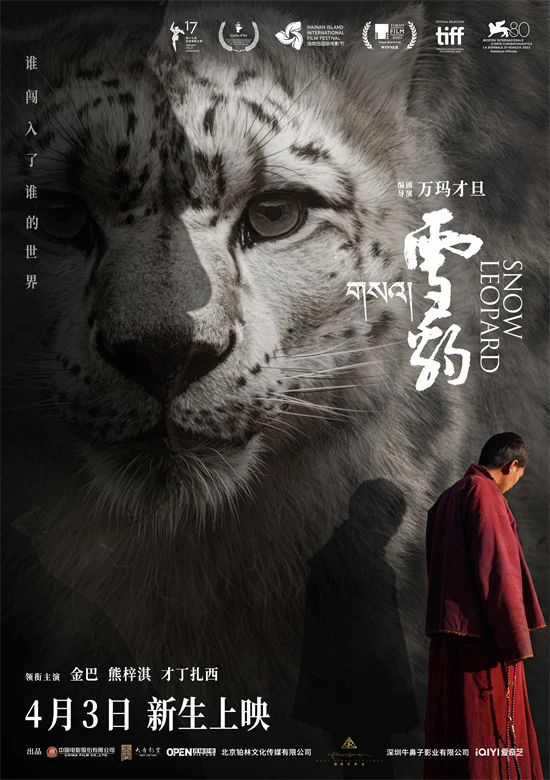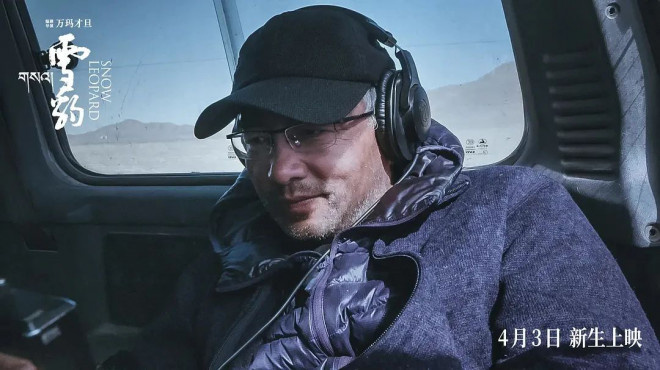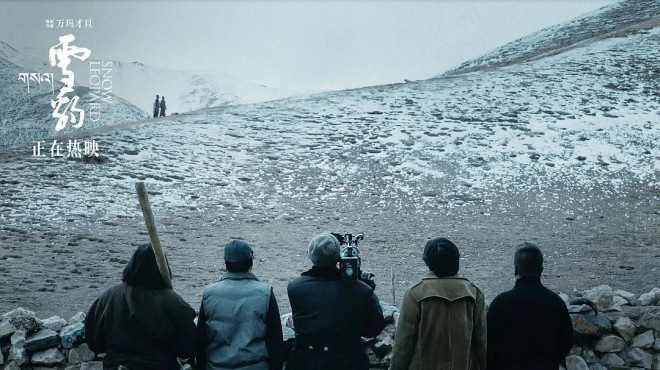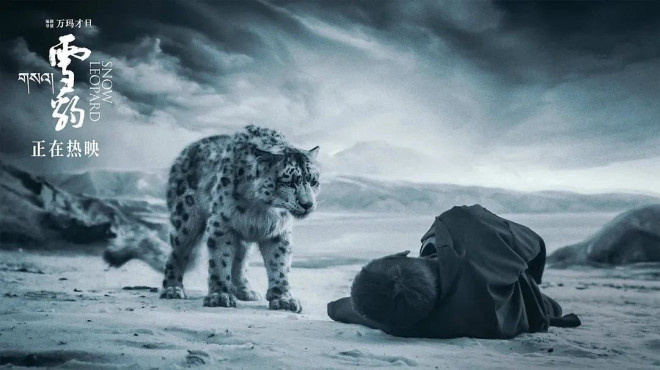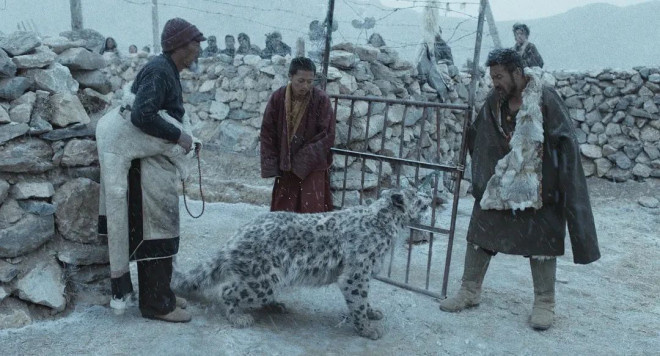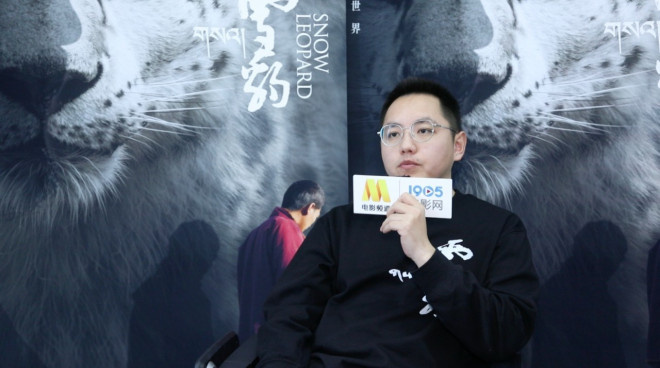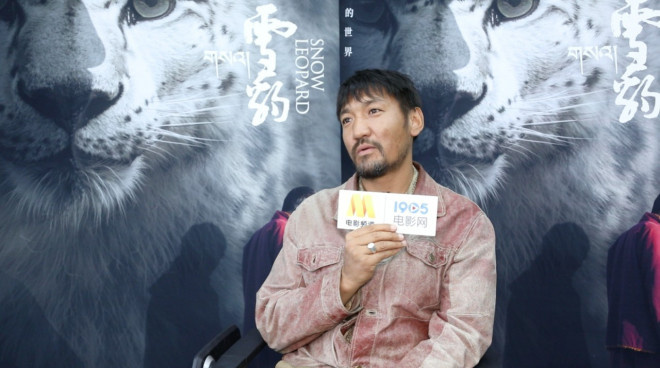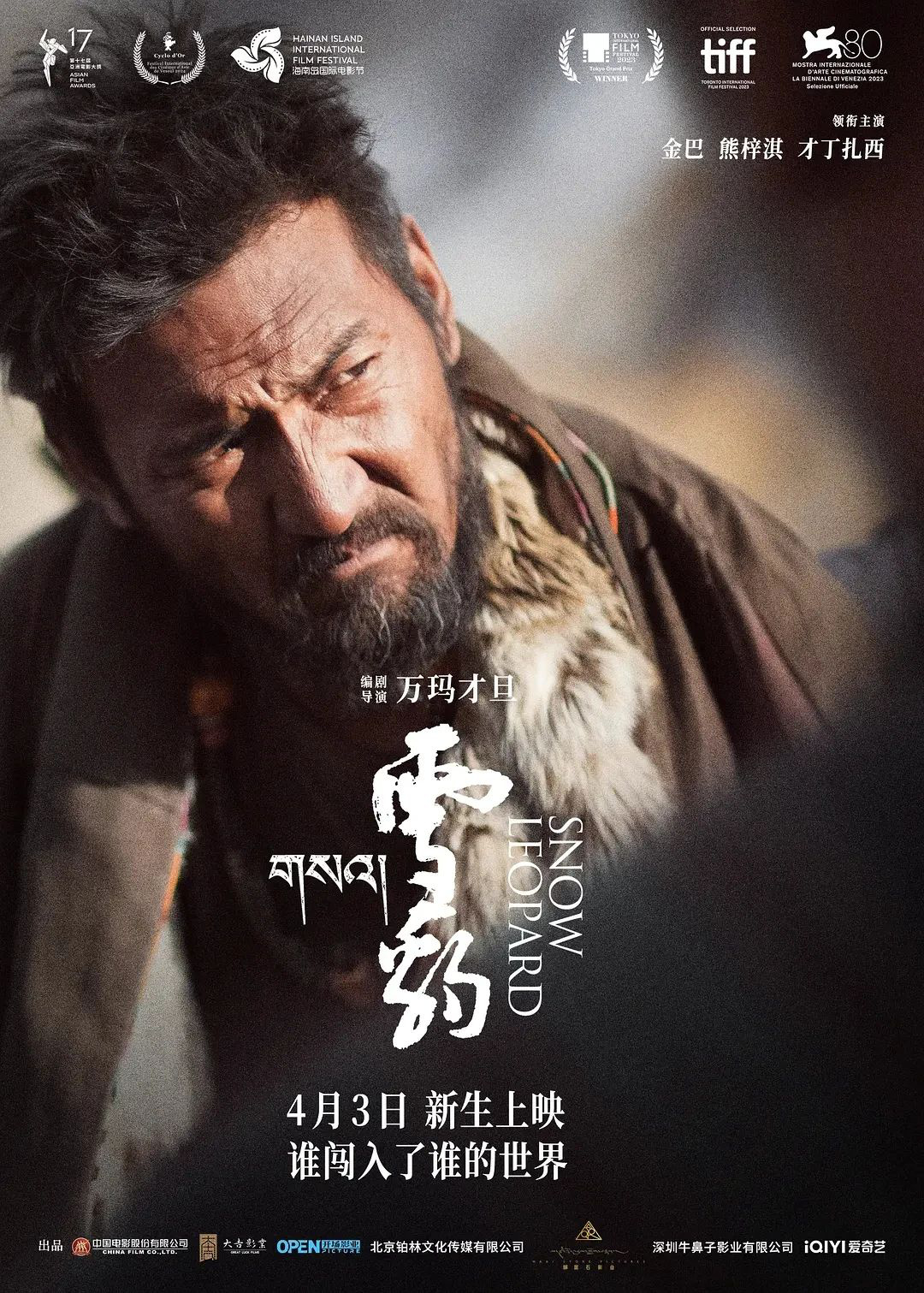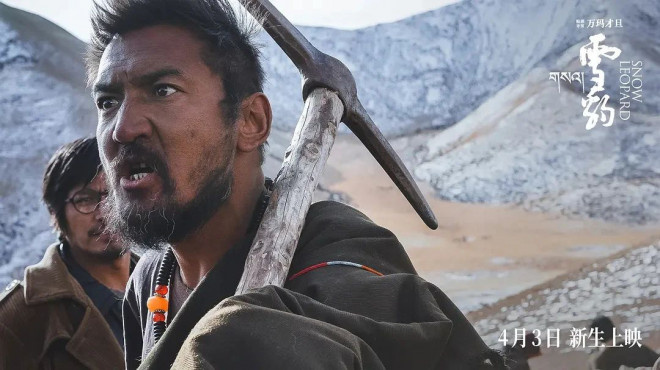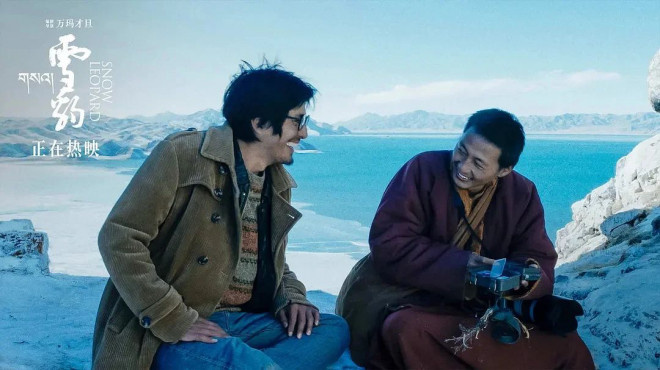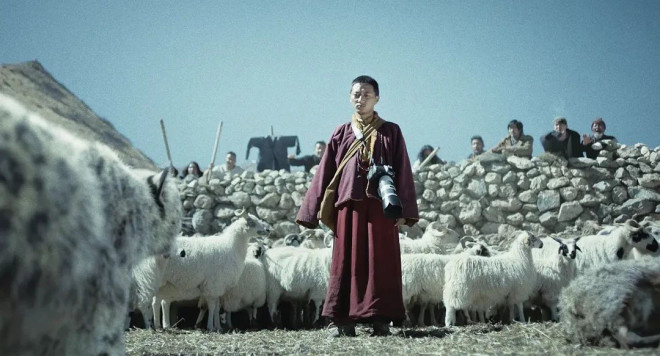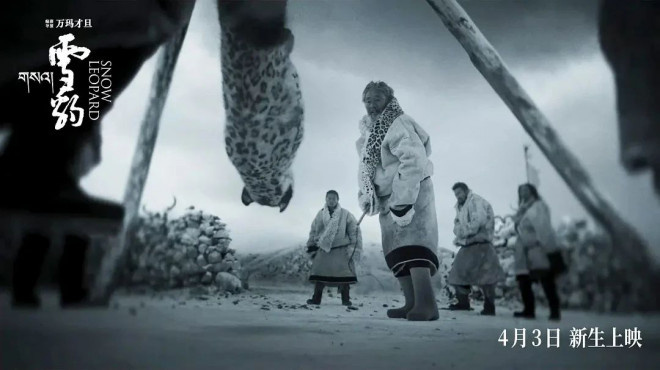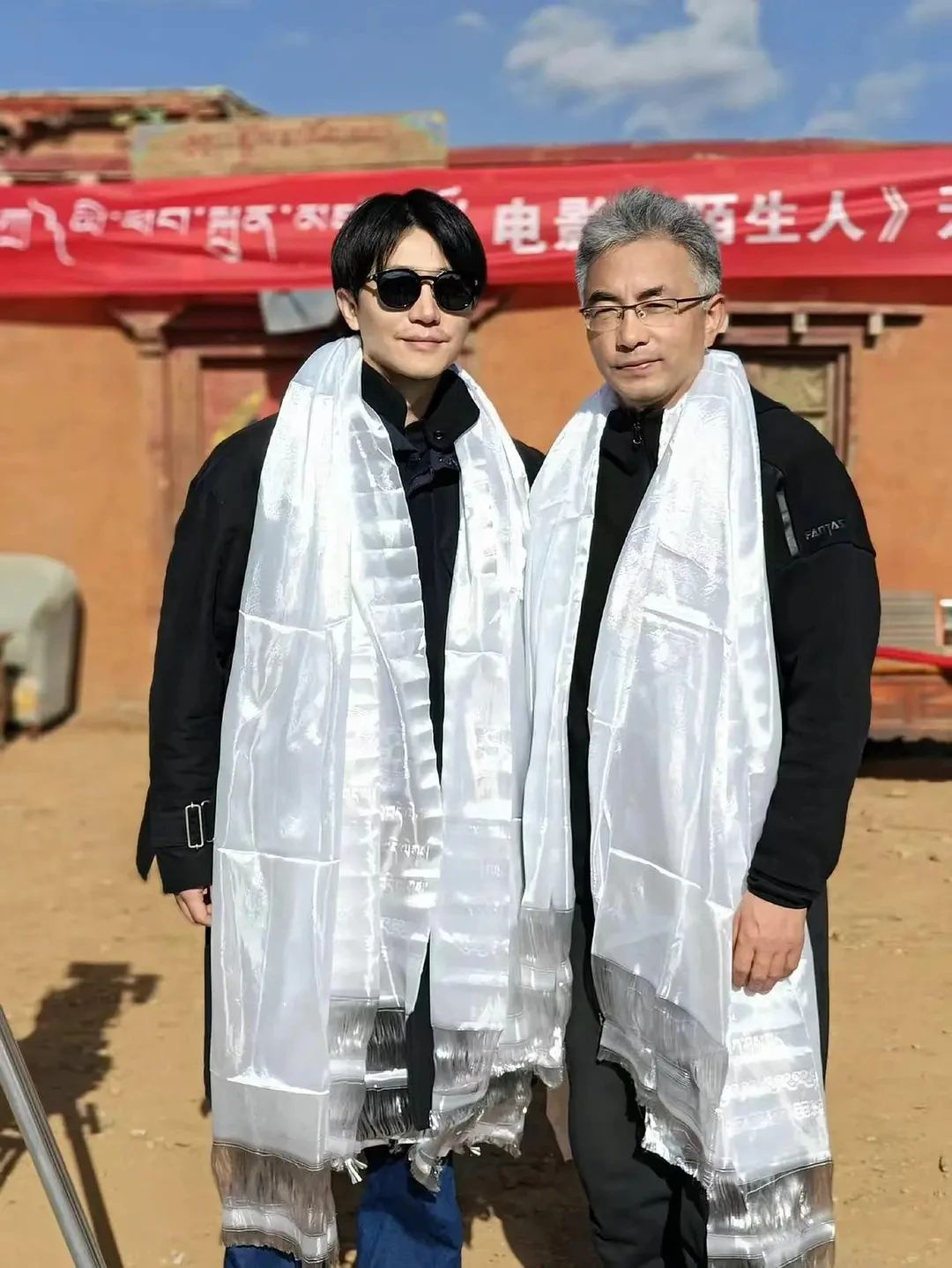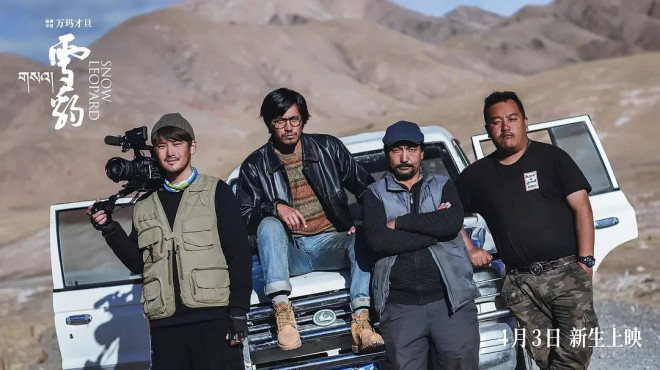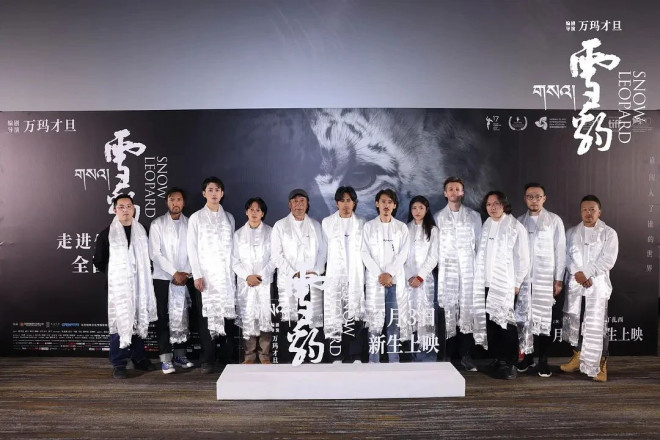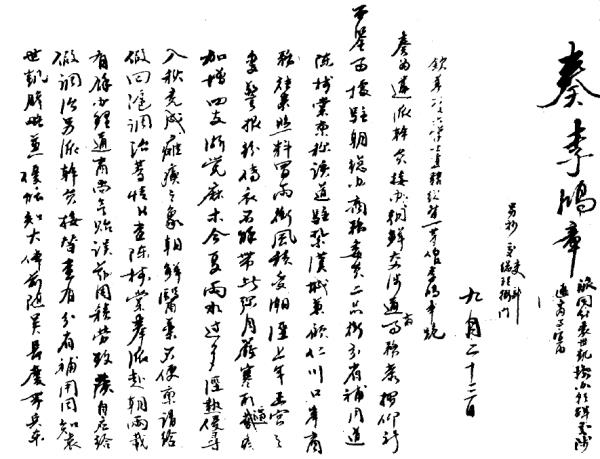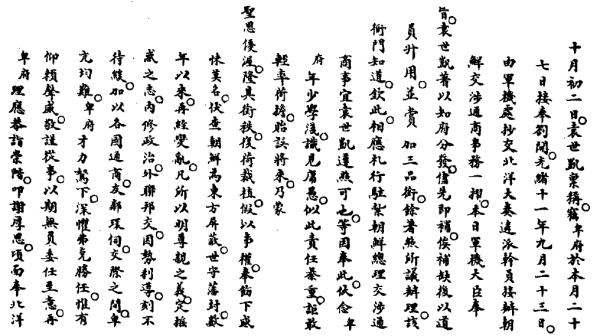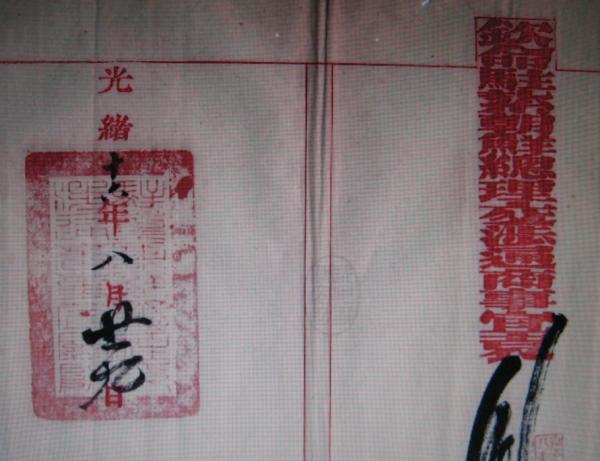Highway traffic emergenciescontingency plan
Ministry of Transport of the People’s Republic of China
two〇〇April of nine years
Catalogue
1 General 1
1.1 Compilation Purpose 1
1.2 Compilation Basis 1
1.3 Classification and Grading 1
1.4 Scope of application 2
1.5 Working Principle 2
1.6 Emergency Plan System 3
2 emergency organization system 4
2.1 Emergency Leading Group 4
2.2 Emergency Working Group 5
2.3 Daily management organization 7
2.4 Expert Advisory Group 8
2.5 Field Working Group 8
2.6 Responsibilities of Emergency Coordination Department 9
3 Operating mechanism 10
3.1 Prediction and Early Warning 10
3.1.1 Early warning information 10
3.1.2 Forecast and Early Warning Support System 12
3.1.3 Early warning classification 12
3.1.4 Early Warning Start-up Procedure 13
3.1.5 Early Warning Termination Procedure 14
3.1.6 Emergency resource requisition 17
3.2 Emergency Disposal 17
3.2.1 Hierarchical Response 17
3.2.2 Emergency Response Initiation Procedure 18
3.2.3 Information submission and processing 21
3.2.4 Command and Coordination 21
3.2.5 National Emergency Material Call 22
3.2.6 Inter-provincial Support 22
3.2.7 Emergency Response Termination Procedure 22
3.3 Restoration and Reconstruction 23
3.3.1 Aftercare Disposal 23
3.3.2 Investigation and evaluation 24
3.3.3 Compensation 24
3.3.4 Restoration and reconstruction 24
3.4 Information Release and Publicity 25
3.4.1 Information Sharing 25
3.4.2 Information Release 25
3.4.3 Press Release and Publicity 25
4 emergency support 27
4.1 Emergency Team 27
4.1.1 Principles of organization 27
4.1.2 Establishment of professional emergency teams 27
4.1.3 Mobilization and participation of social forces 29
4.1.4 Safety Protection of Emergency Personnel 29
4.2 Material and equipment support 29
4.2.1 Types of emergency materials and equipment 29
4.2.2 Emergency Materials and Equipment Reserve System 30
4.2.3 Emergency Material Management System 30
4.3 Communication and Information Guarantee 31
4.4 Technical Support 31
4.4.1 Scientific and technological support 31
4.4.2 Emergency Database 31
4.5 Financial guarantee 32
5 supervision and management 33
5.1 Plan drill 33
5.2 Publicity and training 33
5.3 Emergency Capacity Building Assessment 33
5.4 Responsibility and Reward and Punishment 33
6 supplementary provisions 35
6.1 Plan Management and Update 35
6.2 Formulation and Interpretation Department 35
In order to effectively strengthen the emergency management of highway traffic emergencies, establish and improve the emergency management system and mechanism, improve the ability of emergency prevention and response, control, reduce and eliminate the serious social harm caused by highway traffic emergencies, restore the normal operation of highway traffic in time, ensure the smooth flow of highways, and guide local governments to establish emergency plan systems and organizational systems, enhance emergency support capabilities, meet the needs of effectively responding to highway traffic emergencies, and ensure the normal operation of the economy and society, this plan is formulated.
This plan is formulated in accordance with the Emergency Response Law of People’s Republic of China (PRC), Highway Law of People’s Republic of China (PRC), Regulations of the People’s Republic of China on Road Transportation, National Overall Emergency Plan for Public Emergencies and relevant national special plans and departmental plans.
The highway traffic emergencies mentioned in this plan refer to the emergencies caused by the following emergencies, which cause or may cause interruptions, blockages, heavy casualties, large number of people needing to evacuate, heavy property losses, ecological environment damage and serious social harm to highways and important passenger hubs, as well as the emergency events that require the transportation department to provide emergency transportation guarantee due to the abnormal social and economic fluctuations.
(1) Natural disasters. It mainly includes floods and droughts, meteorological disasters, earthquake disasters, geological disasters, marine disasters, biological disasters and forest and grassland fires.
(2) Road traffic accidents. It mainly includes traffic accidents, highway engineering construction accidents and dangerous goods transportation accidents.
(3) Public health events. It mainly includes infectious diseases, mass unexplained diseases, food safety and occupational hazards, animal epidemics, and other events that seriously affect public health and life safety.
(4) Social security incidents. It mainly includes terrorist attacks, economic security incidents and foreign-related emergencies.
According to their nature, severity, controllability and influence scope, all kinds of highway traffic emergencies are generally divided into four levels: I (particularly significant), II (significant), III (major) and IV (general).
This plan is applicable to the response to particularly serious (Grade I) road traffic emergencies involving cross-provincial administrative divisions, or beyond the disposal capacity of the provincial transportation authorities at the place where the incident occurred, or instructed by the State Council, and other emergencies that need to be handled by the Ministry of Transport.
This plan guides the preparation of emergency plans for local highway traffic emergencies.
Earnestly perform the government’s social management and public service functions, take ensuring the safety of people’s lives and property as the primary task, attach great importance to the emergency handling of road traffic emergencies, improve the level of emergency science and technology, enhance the ability of early warning, prevention and emergency handling, adhere to the combination of prevention and emergency, combine normality with abnormality, raise awareness of prevention, do a good job in pre-plan drills, publicity and training, and do a good job in all kinds of security work to effectively deal with road traffic emergencies.
1.5.2 Unified leadership, graded responsibility, territorial management, linkage and coordination
Under the unified leadership of the people’s government, the emergency work of highway traffic emergencies determined in this plan shall be specifically responsible by the competent department of transportation, with graded response, compartmentalization, territorial management and linkage up and down, giving full play to the role of highway traffic emergency management institutions at all levels.
1.5.3 Clear responsibilities, standardized and orderly, departmental cooperation and resource sharing.
Clarify the responsibilities of emergency management institutions, establish an emergency working mechanism and response procedures with unified command, clear division of labor, sensitive response, orderly coordination and efficient operation, and realize the institutionalization and standardization of emergency management. Strengthen close cooperation with other departments to form a joint handling mechanism for highway traffic emergencies with complementary advantages and shared resources.
The emergency plan system for highway traffic emergencies includes:
(1) Emergency plan for highway traffic emergencies. The emergency plan for road traffic emergencies is the general outline and overall plan of the national emergency plan system for road traffic emergencies, and it is a normative document for the Ministry of Transport to deal with particularly serious road traffic emergencies. It is formulated and promulgated by the Ministry of Transport and submitted to the State Council for the record.
(2) Special emergency plan for highway traffic emergencies. The special emergency plan for traffic emergencies is a special emergency plan formulated by the Ministry of Transport to deal with a certain type or several types of highway traffic emergencies, which is formulated and promulgated by the Ministry of Transport. It mainly involves highway meteorological disasters, floods and geological disasters, earthquake disasters, transportation of key materials, transportation of dangerous goods, evacuation of key transportation hubs, construction safety, safety accidents of extra-large bridges, safety accidents of extra-long tunnels, public health incidents, social security incidents and so on.
(3) Emergency plan for local highway traffic emergencies. The emergency plan for local highway traffic emergencies is an emergency plan (including special plan) formulated by the provincial, prefecture-level and county-level transportation authorities in accordance with the requirements of the emergency plan for highway traffic emergencies formulated by the Ministry of Transport and under the guidance of the higher-level transportation authorities. It shall be formulated, promulgated and implemented by the local transportation authorities and reported to the superior transportation authorities for the record.
(4) Emergency plan for highway transportation enterprises. According to the requirements of national and local emergency plans for highway traffic emergencies, combined with their own reality, all highway transportation enterprises formulate emergency plans for timely responding to all kinds of emergencies that may occur within the enterprise. By the highway transportation enterprises to organize the formulation and implementation.
Highway traffic emergency organization system consists of four emergency management institutions: national (Ministry of Transport), provincial (provincial transportation authorities), municipal (municipal transportation authorities) and county (county-level transportation authorities).
National highway traffic emergency management institutions include emergency leading group, emergency working group, daily management organization, expert consulting group, on-site working group, etc. Provincial, municipal and county transportation authorities may refer to this plan, set up emergency management institutions according to the actual situation in various places, and clarify relevant responsibilities.
Figure 2-1 Emergency Organization System Diagram
The leading group for emergency work of highway traffic emergencies (hereinafter referred to as the "emergency leading group") is the headquarters of Class I highway traffic emergencies, with the Minister of Transport as the leader, the leader in charge of the Ministry as the deputy leader, and the responsible persons of relevant departments within the Ministry of Transport as members.
The responsibilities in the daily state are as follows:
(1) examine and approve the relevant highway traffic emergency plans and their policies and plans;
(2) examine and approve the emergency budget;
(3) Other major related matters.
Responsibilities in emergency state are as follows:
(1) Deciding to start and terminate the early warning status and emergency response actions of Class I highway traffic emergencies;
(2) to be responsible for the unified leadership of the emergency handling of Class I highway traffic emergencies, issue command and dispatch orders, and supervise and inspect the implementation;
(3) According to the requirements of the State Council, or according to the needs of emergency handling, appoint and set up an on-site working group and send it to the scene of emergencies to carry out emergency handling;
(4) according to the needs, in conjunction with the relevant departments of the State Council, formulate a joint action plan to deal with emergencies, and supervise the implementation;
(5) When the emergency is under the unified command of the State Council, the emergency leading group shall carry out corresponding emergency actions according to the instructions of the State Council;
(6) Other major related matters.
The emergency working group was set up automatically when the emergency leading group decided to start the early warning state and emergency response action of Class I highway traffic emergencies, and was set up by the relevant departments within the Ministry of Transport, to undertake the emergency handling work under the unified leadership of the emergency leading group. The emergency working group is divided into eight emergency working groups:
(1) Comprehensive Coordination Team: headed by the Director of the General Office, deputy heads of the leaders in charge of the Highway Bureau and the Safety Supervision Department, and composed of personnel from relevant offices of the General Office, the Highway Bureau and the Safety Supervision Department. Responsible for drafting important reports and comprehensive documents; According to the requirements of the emergency leading group and other emergency working groups, submit emergency work documents to the CPC Central Committee, the State Council and relevant departments; To undertake other tasks assigned by the emergency leading group.
(2) Highway rush team: headed by the director of the Highway Bureau, deputy director in charge of the Highway Bureau as the deputy head, and composed of personnel from relevant offices of the Highway Bureau. Responsible for organizing highway emergency repair and traffic protection, and organizing and coordinating inter-provincial emergency team scheduling and emergency machinery and materials deployment as needed; Draw up the inter-provincial highway bypass plan and organize its implementation; Responsible for coordinating social forces to participate in highway rushing; To formulate a subsidy scheme for emergency rescue and disaster relief funds; To undertake other tasks assigned by the emergency leading group.
(3) Transport Support Team: headed by the Director of the Road Transport Department, deputy director in charge of the Road Transport Department as the deputy head, and composed of personnel from relevant offices of the Road Transport Department. To be responsible for organizing and coordinating the emergency transportation of personnel and materials; Responsible for coordinating the combined transport with other modes of transport; To formulate a subsidy scheme for emergency transportation requisition compensation funds; To undertake other tasks assigned by the emergency leading group.
(4) Communication Support Team: headed by the Director of the Science and Technology Department, deputy heads of the leaders in charge of the general office and communication center, and composed of personnel from relevant departments of the Science and Technology Department, the general office and the communication center. Responsible for information system communication support; Responsible for the communication guarantee of video teleconference; Ensure that the Ministry of Transport issues faxes and notifications of emergency work documents to local highway traffic emergency management agencies; To undertake other tasks assigned by the emergency leading group.
(5) News propaganda group: headed by the director of the Policy and Regulation Department, deputy director of the Policy and Regulation Department as the deputy head, and composed of the staff of relevant departments of the Policy and Regulation Department and the liaison officer of the Information Office. Responsible for collecting and processing relevant news reports, and eliminating the negative effects caused by false reports in time; According to the requirements of the emergency leading group, prepare to hold a press conference to inform the society of the impact of emergencies and the progress of emergency handling; Responsible for organizing relevant news media to publicize and report the advanced deeds and models emerging in emergency response work; To guide the news release of local emergency management agencies; To undertake other tasks assigned by the emergency leading group.
(6) Logistics Support Team: headed by the director of the office service center, deputy director in charge of the office service center as the deputy head, and composed of personnel from relevant departments of the office service center. Responsible for the 24-hour logistics service during the emergency state; To undertake other tasks assigned by the emergency leading group.
(7) Recovery and reconstruction team: headed by the Director of the Comprehensive Planning Department, deputy heads of the leaders in charge of the Highway Bureau, Finance Department and Quality Supervision Station, and composed of personnel from relevant departments of the Comprehensive Planning Department, Highway Bureau, Finance Department and Quality Supervision Station. Responsible for the statistics of highway disasters and organize post-disaster investigation; Draw up the post-disaster recovery and reconstruction plan of highway and organize its implementation; To undertake other tasks assigned by the emergency leading group.
(8) Summary and evaluation team: headed by the director of the Highway Bureau, composed of other emergency working groups, expert consultation groups and relevant personnel of scientific research units directly under the Ministry of Transport. Responsible for compiling memorabilia of emergency response work; Summarize and evaluate the emergency situation, emergency measures, main achievements and existing problems, put forward suggestions for the next step, and submit a summary evaluation report to the emergency leading group; To undertake other tasks assigned by the emergency leading group.
The comprehensive coordination group, the highway rushing group, the transportation support group, the communication support group and the logistics support group are automatically dissolved when the emergency leading group decides to terminate the early warning state and emergency response action of Class I highway traffic emergencies; The news propaganda team, the recovery and reconstruction team and the summary and evaluation team shall be dissolved by the emergency leading group after the relevant work is completed.
The Ministry of Transport has set up the Highway Network Management and Emergency Disposal Center (hereinafter referred to as the "Road Network Center"), as a national-level daily highway traffic emergency management institution, which works under the leadership of the emergency leading group.
The responsibilities in the daily state are as follows:
(1) To be responsible for the operation monitoring of the national expressway network, ordinary national highways and important passenger transport hubs, and the collection and processing of relevant information, and to release highway travel information to the society;
(2) Responsible for daily work such as contact, information upload and release with relevant emergency management agencies in the State Council and local transportation emergency management agencies;
(3) To formulate and revise emergency plans and relevant rules and regulations related to highway transportation;
(4) To guide the preparation and implementation of local highway traffic emergency plans;
(5) Organizing emergency training and drills for highway traffic;
(6) Organizing the research and development of emergency science and technology and participating in relevant international cooperation;
(7) put forward the annual emergency work budget proposal;
(8) Participate in the compilation of highway traffic emergency planning;
(9) according to the request of the local highway traffic emergency management agencies, emergency guidance or coordinated action;
(10) Responsible for supervising the construction and management of national highway traffic emergency materials reserve points;
(11) To undertake other tasks assigned by the emergency leading group.
Responsibilities in emergency state are as follows:
(1) Be responsible for receiving police on duty for 24 hours;
(2) To be responsible for receiving and processing the forecast and early warning information of the emergency coordination department, tracking and understanding the emergencies related to highway transportation, and putting forward suggestions to the emergency leading group for starting the Class I early warning status and emergency response action in time;
(3) Be responsible for collecting and summarizing emergency information and relevant information of emergency handling work carried out by the emergency working group, and compiling emergency work daily;
(4) According to the requirements of the emergency leading group and the emergency working group, be responsible for the specific daily work of emergency disposal, and uniformly issue emergency working documents to the local highway traffic emergency management institutions;
(5) To undertake other tasks assigned by the emergency leading group.
The expert advisory group is an emergency advisory body composed of experts in engineering technology, scientific research, management and law in highway transportation industry and other related industries. The specific responsibilities of the Expert Advisory Group are as follows:
(1) to participate in the formulation and revision of all kinds of emergency plans and relevant rules and regulations related to highway transportation;
(2) To provide professional advice and suggestions on emergency preparedness and emergency action plan;
(3) To be responsible for giving advice on the termination of emergency response and post-analysis and evaluation;
(4) To undertake other matters entrusted by the emergency leading group or the road network center.
The on-site working group is a temporary organization appointed by the emergency leading group and sent to the incident site according to the requirements of the State Council, or when the first-class warning and response of highway transportation is issued, or at the request of the local transportation authorities. When the on-site working group was established by the State Council, the Ministry of Transport sent ministerial leaders to participate in the on-site working group; When the on-site working group was established by other departments in the State Council, the Ministry of Transport sent bureau-level leaders to participate in the on-site working group. The specific responsibilities of the on-site working group are as follows:
(1) According to the unified deployment of the State Council, participate in the emergency response work organized by the local people’s government, and report the relevant situation to the emergency leading group in time;
(2) Responsible for the on-site command and dispatch of inter-provincial highway traffic emergency teams, and ensure the safety of operation;
(3) provide technical support for highway transportation;
(4) to assist the relevant departments to carry out emergency handling of highway construction projects, road transportation and passenger and freight station safety accidents;
(5) To undertake other tasks assigned by the emergency leading group.
The early warning and disposal of highway traffic emergencies need the active cooperation and joint implementation of relevant departments. In the emergency response to emergencies, emergency management agencies coordinate relevant departments to participate in emergency cooperation under the unified leadership of emergency management agencies in the State Council according to the level and type of emergencies, and the division of emergency tasks of each cooperation department depends on its responsibilities.
The Armed Police Traffic Force is incorporated into the national emergency rescue force system as a professional emergency team for national highway traffic emergencies. The national professional team for emergency response to road traffic emergencies shall participate in the emergency response to road traffic emergencies according to the relevant provisions of the state.
3.1.1 Early warning information
Early warning and related information related to highway traffic emergencies include:
(1) Meteorological monitoring, forecasting and early warning information
The daily 24-hour national precipitation map and diagram show the average and maximum values of monitoring weather elements such as precipitation, temperature and humidity in the most serious areas;
Short-term weather forecast (including graphic) within 72 hours, medium-term trend forecast (including graphic) of major traffic events (including routine and various sudden traffic events such as Golden Week and large-scale activities), and long-term trend forecast of meteorological disasters (flood season, winter, etc.);
Special reports on early warning information of various meteorological disaster cycles (including weather types, estimated occurrence time, estimated duration, influence range, estimated intensity, etc.) and early warning information of typhoons, rainstorms, snowstorms, fogs, road icing and sandstorms issued by the competent meteorological departments.
(2) Monitoring information of strong earthquake (intensity above 5.0)
Earthquake intensity, epicenter location, estimated duration, already and predicted influence range (including graphic), estimated number of people affected by the disaster and direct economic losses, estimated transportation route of emergency relief materials, and transportation capacity demand with the cooperation of transportation authorities.
(3) Monitoring and forecasting information of sudden geological disasters
The monitoring information of sudden geological disasters includes the occurrence time, location, intensity, estimated duration, name and location of the affected roads, number of people affected, evacuation (transfer) starting point, destination, passing highway route and capacity demand that needs the cooperation of the transportation authorities.
The forecast information of sudden geological disasters includes the grade, occurrence time, occurrence place, expected duration and expected influence range of sudden geological disasters.
(4) information of flood, dike breach and dam collapse in reservoir area
Flood level, basin, occurrence time, flood peak height and current position, location of flood discharge area, affected area and predicted area (including diagram), estimated number of affected people and direct economic losses, number of people to be evacuated (transferred), departure place, destination, passing route, and capacity demand that needs the cooperation of transportation authorities.
The time and place of occurrence of dike breach and dam collapse in the reservoir area, the affected and predicted areas (including the diagram), the estimated number of people affected by the disaster and direct economic losses, the number of people to be evacuated (transferred), the starting point, destination, passing route, and the transportation demand that needs the cooperation of the transportation authorities.
(5) Tsunami disaster prediction and early warning information
Estimated time of storm surge and tsunami disaster, estimated affected area (including graphic), estimated affected population and direct economic loss, estimated emergency relief materials, capacity requirements of population evacuation transportation and road routes.
(6) Information of major public health emergencies
The name of the sudden disease, the discovery event, the location of discovery, the transmission channel, the current number of deaths and infections, the number of people expected to be affected, the number of people who need to be isolated and evacuated (transferred), the special treatment requirements of the disease for highway transportation, the highway routes through which emergency health and relief materials are transported, the highway trunk lines that need the cooperation of the transportation authorities, and the traffic management means and capacity requirements of the hub.
(7) Impact information of environmental pollution events
Dangerous goods types, leakage reasons, diffusion forms, occurrence time, occurrence place, name and location of the road section, influence scope, population and economic losses, estimated cleaning and recovery time, and emergency rescue vehicles passing through highway routes;
The reasons for the mass evacuation (transfer) due to environmental events, the number of people to be evacuated (transferred), the time of evacuation (transfer), the place of departure, the destination, the passing route, and the demand for transportation capacity that needs the cooperation of the transportation authorities.
(8) Information on the impact of serious traffic accidents
The cause, occurrence time, occurrence place, road interruption, congestion and direct loss of road facilities of major traffic accidents, and the estimated recovery time.
(9) Emergency material transportation information caused by market commodity shortage and sharp price fluctuation.
The type, quantity, source and destination, route, carrying conditions and transportation time of the transported materials.
(10) information on highway damage, interruption and congestion and information on passengers stranded in important passenger transport hubs.
Causes of road damage, interruption and blockage, occurrence time, starting and ending positions and pile numbers, estimated recovery time, direct loss of road infrastructure, number of vehicles stranded and overstocked, queue length, emergency management measures taken, detour route, etc.
The reasons, occurrence time, current number of stranded vehicles and overstocked vehicles in important passenger transport hubs and their changing trends, station capacity, emergency capacity reserve and use, emergency management measures taken, etc.
(11) Others
Other emergency information that needs the transportation department to provide emergency support.
3.1.2 Forecast and early warning support system
Establish a forecasting and early warning support system for the impact of meteorological disasters, earthquakes, geological disasters and other emergencies in the transportation industry. Establish a standing address book and information base for early warning contacts at all levels, establish a database of risk sources of road traffic emergencies, and establish a forecasting and evaluation system for the impact of road traffic emergencies.
Cooperate with relevant emergency departments to establish a long-term prediction and early warning mechanism.
The road network center is responsible for the construction of the forecasting and early warning support system of the Ministry of Transport, and the provincial transportation authorities build forecasting and early warning support systems at all levels in the province under the guidance of the road network center.
3.1.3 Early warning classification
According to the impact of emergencies on highway traffic and the required transportation capacity, there are four levels of early warning, namely, I-level early warning (especially serious early warning), II-level early warning (serious early warning), III-level early warning (heavier early warning) and IV-level early warning (general early warning), which are represented by red, orange, yellow and blue respectively. The Ministry of Transport is responsible for the initiation and release of Class I early warning, and the provincial, municipal and county transportation authorities are responsible for the initiation and release of Class II, III and IV early warning.
Table 3-1 Early Warning Level of Highway Traffic Emergencies
|
Early warning level
|
Level description
|
Color marking
|
Situation of events
|
|
Class I
|
special
serious
|
red
colour
|
L Due to unexpected events, the national trunk highway traffic may be damaged, interrupted or blocked, or a large number of vehicles are overstocked and people are stranded, and the traffic capacity affects neighboring provinces. The time for emergency repair and disposal is expected to be more than 24 hours.
L due to unexpected events, the operation of important passenger hubs may be interrupted, resulting in a large number of passengers stranded, and the resumption of operation and evacuation are expected to be more than 48 hours.
L when the shortage of important materials and large price fluctuations may seriously affect the overall economic operation and people’s normal life in the whole country or a large area, which exceeds the capacity organization capacity of the provincial transportation authorities.
L when other emergency support may be provided by the Ministry of Transport.
|
|
Level II
|
serious
|
orange
colour
|
L When the emergency may lead to the destruction, interruption and congestion of national trunk highway traffic, or a large number of vehicles are overstocked and people are stranded, and the time for emergency repair and disposal is expected to be more than 12 hours.
L due to unexpected events, the operation of important passenger hubs may be interrupted, resulting in a large number of passengers stranded, and the resumption of operation and evacuation are expected to be more than 24 hours.
L when the shortage of important materials and large price fluctuation may seriously affect the overall economic operation and people’s normal life in the province.
L when other emergency support may need to be provided by the provincial transportation authorities.
|
|
Level III
|
Heavier
|
yellow
colour
|
The classification conditions of l Ⅲ early warning shall be determined by the provincial transportation authorities with reference to Grade I and Grade II early warning levels and in combination with local characteristics.
|
|
Level IV
|
common
|
blue
colour
|
The grading conditions for L-IV early warning shall be determined by the provincial transportation authorities with reference to Grade I, Grade II and Grade III early warning grades and in combination with local characteristics.
|
3.1.4 Early warning start-up procedure
In case of Grade I early warning of highway traffic emergencies, the Ministry of Transport will start the early warning according to the following procedures:
(1) The road network center puts forward suggestions for starting the first-class early warning state of highway traffic emergencies;
(2) The emergency leading group decides whether to start the Class I highway traffic emergency warning within 2 hours. If it agrees to start, it will formally issue the Class I early warning start-up document and report to the emergency management department of the State Council, and the emergency working groups of the Ministry of Transport will enter the standby state;
(3) Within 1 hour after the issuance of the Class I early warning start-up document, the road network center shall be responsible for issuing it to the relevant provincial highway traffic emergency management institutions, and confirm the receipt by telephone;
(4) According to the needs of the situation, the emergency leading group shall decide whether the Class I early warning needs to be released to the society, and if necessary, contact the relevant emergency coordination departments of the early warning for joint issuance within 12 hours;
(5) The Class I early warning documents that have been jointly issued shall be contacted by the news propaganda group and announced to the public;
(6) The road network center will immediately carry out special reporting of emergency monitoring and early warning information, grasp and report the progress of events at any time, form a dynamic daily report system for emergencies, and increase the frequency of early warning reports according to the requirements of the emergency leading group;
(7) The emergency working groups of the Ministry of Transport carry out emergency preparations, and the highway rushing group and the transportation security group carry out emergency materials requisition preparations.
Class II, III and IV early warning start-up procedures are compiled by local transportation authorities at all levels with reference to Class I early warning start-up procedures, combined with local characteristics; In the early warning process, if it is found that the situation has expanded beyond the early warning conditions at the same level or the disposal capacity of the competent transportation department at the same level, it should be reported to the competent transportation department at the next higher level in time, and it is suggested to improve the early warning level.
3.1.5 Early warning termination procedure
In case of the downgrade or cancellation of Grade I early warning, the Ministry of Transport shall adopt the following early warning termination procedures:
(1) According to the early warning monitoring and tracking information, the road network center confirms that the highway traffic emergencies involved in the early warning have not met the Class I early warning start-up standard, and when it needs to be downgraded, transformed or revoked, it puts forward suggestions for the termination of Class I early warning status to the emergency leading group;
(2) After the emergency leading group agrees to terminate, it will formally issue the Class I early warning termination document, clearly put forward the early warning follow-up treatment opinions, and report the early warning termination document to the State Council within 24 hours, and all emergency working groups of the Ministry of Transport will cancel it themselves;
(3) If the early warning is downgraded to Grade II, the road network center is responsible for notifying the provincial transportation authorities involved in the early warning within 1 hour, and the provincial transportation authorities will start the early warning procedure within 12 hours, and submit the officially issued early warning initiation document to the road network center;
(4) If the early warning is downgraded to Grade III or IV, the road network center is responsible for notifying the provincial transportation authorities involved in the early warning, and the provincial transportation authorities will organize the cities or counties involved to start the early warning;
(5) If the early warning is cancelled directly, the road network center is responsible for sending the early warning termination document to the departments and units listed in the early warning start document within 24 hours;
(6) The early warning termination procedures for Grade II, III and IV shall be compiled by local transportation authorities at all levels with reference to the early warning termination procedures for Grade I and in combination with local characteristics;
After the corresponding emergency response is started, the early warning termination time is consistent with the emergency response termination time, and the early warning termination procedure is no longer started separately.
3.1.6 Emergency resource requisition
Highway rush group and transportation support group should put forward the requisition plan of highway traffic emergency support resources according to the characteristics and influence degree and scope of early warning events, and issue it after the approval of the emergency leading group.
Within 24 hours after the requisition notice issued by the Ministry of Transport, the relevant provincial transportation authorities shall be responsible for organizing and requisitioning relevant emergency support resources, signing the requisition notice of highway traffic emergency support resources and issuing it to relevant units, recruiting and dispatching personnel, vehicles, equipment and materials related to highway emergency rescue and transportation support, and assembling at designated places for standby.
3.2.1 Hierarchical response
3.2.1.1 response level
According to its controllability, severity and scope of influence, highway traffic emergencies can be divided into four grades: particularly important events (Grade I), major events (Grade II), major events (Grade III) and general events (Grade IV).
The Ministry of Transport is responsible for the initiation and implementation of Class I emergency response, the provincial transportation authorities are responsible for the initiation and implementation of Class II emergency response, the municipal transportation authorities are responsible for the initiation and implementation of Class III emergency response, and the county transportation authorities are responsible for the initiation and implementation of Class IV emergency response.
Particularly important events (ⅠLevel):The emergency leading group shall confirm the road traffic emergencies that meet the first-class warning conditions of road traffic in Paragraph 3.1.4 of this plan or the emergency materials transportation issued by the State Council, start and implement the road traffic emergency response at the corresponding level, and submit it to the State Council for the record.
Major events (Grade II): The emergency of highway traffic or the emergency material transportation issued by the Ministry of Transport, which meets the Grade II warning conditions of highway traffic in Paragraph 3.1.4 of this plan, shall be confirmed by the provincial transportation authorities under the leadership of the provincial people’s government, and the emergency response of highway traffic at the corresponding level shall be initiated and implemented, and submitted to the Ministry of Transport for the record.
Major events (Grade III)Highway traffic emergencies that meet the Grade III warning conditions of highway transportation determined by the provincial transportation authorities shall be initiated and implemented by the municipal transportation authorities under the leadership of the municipal people’s government, and submitted to the provincial transportation authorities for the record.
General events (Grade IV)Highway traffic emergencies that meet the Grade IV warning conditions of highway transportation determined by the provincial transportation authorities shall be initiated and implemented by the county-level transportation authorities under the leadership of the county-level people’s government, and submitted to the municipal transportation authorities for the record.
Other emergencies under the responsibility of the Ministry of Transport of 3.2.1.2.
In addition to Class I early warning or emergency response, the Ministry of Transport is also responsible for handling the following emergencies according to their severity, urgency, controllability, sensitivity and scope of influence:
(1) According to the daily monitoring of the road network center or the key tracking of the level II emergency response events that have been started, it has developed into a particularly serious event (level I) or an emergency that has attracted special attention from the State Council and the public and that the Ministry of Transport thinks it is necessary to coordinate and handle without starting the level I emergency response;
(2) according to the request of the provincial emergency management agencies, the Ministry of Transport needs to coordinate the handling of emergencies;
(3) According to the deployment of the State Council, the Ministry of Transport is responsible for assisting in handling emergencies.
3.2.2 Emergency response start-up procedure
In case of Class I response, the Ministry of Transport will start the response according to the following procedures and contents:
(1) The road network center puts forward suggestions for starting the Class I emergency response of highway traffic emergencies;
(2) The emergency leading group decides whether to start the level I emergency response within 2 hours. If it is agreed to start, a Class I emergency response start-up document will be officially issued and submitted to the State Council, and a telephone or video conference will be convened within 24 hours for all relevant departments in the State Council and relevant local transportation authorities. The leader of the emergency leading group will officially announce the start of Class I emergency response, and the news propaganda group will be responsible for publishing the Class I emergency response document to the public;
(3) After the announcement of Class I emergency response, the emergency leading group shall designate and set up a field working group as needed to rush to the scene to direct the emergency treatment of highway traffic;
(4) After the announcement of Class I emergency response, the road network center and all emergency working groups immediately start the 24-hour duty system to carry out emergency work according to the provisions in 2.2 and 2.3 of this plan.
Local emergency management agencies can refer to the level I response procedures, combined with the actual situation in the region, to determine their own level II, III, IV highway traffic emergency response procedures. When the support of relevant emergency forces is needed, a request shall be made to the highway traffic emergency management institution at the next higher level in time.
3.2.3 Information submission and processing
Establish an inter-ministerial information rapid notification and linkage response mechanism, clarify the name and contact information of emergency daily management institutions of relevant departments, determine the notification departments of different types of early warning and emergency information, establish information rapid communication channels, stipulate the time limit for notification and feedback of all kinds of information, and form a relatively complete emergency information rapid communication mechanism.
Establish and improve the provincial highway traffic emergency information reporting and linkage mechanism, and the road network center will summarize the reported highway traffic emergency information, release it to the provinces (autonomous regions and municipalities) that may be affected in time, and provide cross-regional travel information services.
After the release of early warning information and the start of emergency response, the provincial highway traffic emergency management agency involved in the incident shall report the progress to the road network center in time and form a daily briefing according to the "zero report" system. The road network center will summarize the progress information in time to form a daily highway traffic emergency briefing, report it to the emergency leading group, and notify the emergency working groups.
The contents of the information report include: the type, time, place, scope and degree of impact of the incident, and the emergency measures taken and the results.
The relevant units of highway transportation management shall, after discovering or receiving the highway traffic emergencies reported by the public, after verification, immediately organize and mobilize forces to carry out emergency response work according to the division of responsibilities, fully control the development of the situation, and report to the competent department of transportation within 2 hours.
3.2.4 Command and coordination
Coordination and Command Mechanism of Provincial Road Networks in 3.2.4.1
When there is a road traffic emergency above Grade II, the road network center and the road traffic emergency management agency at the incident place all enter the 24-hour emergency duty state to ensure the smooth information of the daily emergency management agencies at the provincial and provincial levels.
Establish a regular video emergency consultation mechanism between the Ministry of Transport and the provincial transportation authorities of relevant provinces.
Road network center coordinates provincial highway traffic emergency management agencies, scientifically implements cross-regional highway network bypass and diversion measures, and timely releases road information.
3.2.4.2Inter-departmental coordinationmechanism
When a Class I highway traffic emergency occurs, the Ministry of Transport and the Ministry of Public Security and other departments establish a coordination mechanism, strengthen cooperation according to the division of responsibilities, and jointly carry out emergency response work. At the same time, guide the local highway traffic emergency management agencies to establish a joint dispatching and command mechanism with the public security traffic police to realize "joint command, joint patrol, joint law enforcement and joint rescue" by the road police.
On-site command and coordination mechanism in 3.2.4.3
The on-site working group is responsible for guiding and coordinating the on-site emergency handling of Class I highway traffic emergencies, collecting and mastering relevant information in time, optimizing measures, studying alternative schemes and reporting the latest state of affairs and transportation guarantee in time according to the characteristics and distribution of emergency materials, the affected location, regional road network structure and its damage degree, weather conditions, etc.
3.2.5 National emergency material call
When the provincial emergency material reserve is limited in quantity, type, time and geographical conditions, and it is necessary to call the national highway traffic emergency material reserve, the provincial highway traffic emergency management institution in the place where it is used shall apply, and with the consent of the emergency leading group, the road network center shall issue the national highway traffic emergency material call instruction, and the emergency material reserve management unit shall complete the delivery of the reserve material within 48 hours after receiving the allocation notice from the road network center.
3.2.6 Inter-provincial support
Under the coordination of the Ministry of Transport, establish an inter-provincial emergency resource mutual assistance mechanism, make full use of provincial emergency material reserves and emergency disposal forces reasonably, and coordinate the support actions of local emergency forces on the principle of proximity. For the use of inter-provincial emergency forces, the recipient places shall give compensation for expropriation.
3.2.7 Emergency response termination procedure
When the level I emergency response is terminated, the Ministry of Transport shall adopt the following termination procedures:
(1) The road network center confirms that the road traffic has resumed normal operation and the road traffic emergencies have subsided according to the event information it has mastered, and puts forward a proposal to the emergency leading group to terminate the level I emergency response state;
(2) The emergency leading group decides whether to terminate the level I emergency response status. If it agrees to terminate, it will issue the level I emergency response termination document, put forward the follow-up treatment opinions of emergency response termination, and submit it to the State Council and relevant departments within 24 hours;
(3) The news propaganda team is responsible for announcing the end of Class I emergency response to the public, explaining the measures and effects that have been taken and the measures that will be taken after the emergency response is terminated.
Emergency response termination procedures for Grade II, III and IV shall be compiled by emergency management agencies at all levels with reference to Grade I emergency response termination procedures and in combination with local characteristics.
3.3.1 Aftercare disposal
Pensions and subsidies in 3.3.1.1
The competent departments of highway transportation at all levels in the incident area cooperate with the local people’s government to give subsidies to the relevant personnel involved in emergency response in accordance with relevant regulations; In accordance with the relevant provisions of the state, people who are sick, disabled or killed due to their participation in emergency handling shall be given corresponding subsidies and pensions, and relevant psychological and judicial assistance shall be provided.
3.3.1.2 rescue
The competent departments of highway transportation at all levels in the incident area cooperated with the civil affairs departments to timely organize the delivery of relief materials, daily necessities and social donations to ensure the basic livelihood of the people.
3.3.1.3 Prize
After the termination of emergency response, the competent departments of highway transportation at all levels shall commend and reward the advanced collectives and individuals who have contributed to the emergency response.
3.3.2 Investigation and evaluation
The summary evaluation team is specifically responsible for the investigation and evaluation of level I response.
Provincial highway traffic emergency management institutions shall submit summary and evaluation materials according to the requirements of national highway traffic emergency management institutions, including emergency situations, emergency measures taken, achievements, main problems and suggestions.
3.3.3 compensate
Compensation of 3.3.3.1 National Highway Traffic Emergency Material Reserve
The principle of "free use" shall be adopted when using the national highway traffic emergency material reserve in Class I emergencies handled by the Ministry of Transport. The recoverable and reusable emergency reserve materials shall be recovered, cleaned, disinfected and sorted by the transportation authorities in the place where they are used, and then put into storage by the storage unit. The Ministry of Transport is responsible for supplementing the lost and damaged materials. If the Ministry of Transport agrees to use the national highway traffic emergency material reserve in other emergencies, compensation shall be made according to the relevant provisions in accordance with the principle of "whoever uses it shall compensate".
3.3.3.2 expropriation compensation
Transportation authorities at all levels shall be responsible for the requisition and compensation of highway traffic emergency support resources at corresponding levels, and report to the transportation authorities at higher levels.
After the highway traffic emergency support operation is completed, the requisitioned unit (person) shall submit an application for emergency requisition compensation to the competent department of transportation. After receiving the application for compensation, the competent department of transportation shall issue a notice of acceptance of administrative compensation in accordance with the regulations, and examine the application for compensation in combination with the relevant requisition records and after-the-fact investigation and evaluation. After the examination and approval, it shall issue a notice of compensation for emergency requisition and make compensation in accordance with the relevant provisions.
The forms of compensation for administrative expropriation include: cash compensation, financial tax relief, material compensation and other forms of administrative compensation.
3.3.4 Restoration and reconstruction
The recovery and reconstruction team is responsible for organizing the recovery and reconstruction of Class I response, and the provincial highway transportation department is responsible for the specific implementation.
Other level events need the assistance of the Ministry of Transport, the provincial highway transportation authorities shall make a request to the Ministry of Transport, and the road network center shall put forward suggestions and opinions according to the investigation and evaluation report, organize assistance after being approved by the emergency leading group, and organize an expert group to give on-site guidance when necessary.
3.4.1 information sharing
(1) The Road Network Center is responsible for establishing information sharing mechanisms and channels, and collecting and processing information of national highway traffic emergencies.
(2) Relevant departments of the State Council provide relevant emergency information in a timely manner according to national emergency management requirements and departmental responsibilities; Local transportation departments and units provide timely information reports and necessary basic data of various events.
(3) The road network center will inform the emergency working group of the information in time, and the emergency working group will report it to the emergency leading group after review and confirmation.
3.4.2 Information distribution
(1) The Road Network Center is responsible for the information release of particularly serious highway traffic emergencies. Other highway traffic emergencies are released by highway traffic emergency management agencies at all levels.
(2) The distribution channels include the internal business system, the website of the Ministry of Transport and the service website managed by the road network center, as well as the media authorized by the Ministry of Transport.
(3) The release of information related to highway traffic emergencies should strengthen coordination and communication with the news propaganda group, and provide all kinds of relevant information in a timely manner.
3.4.3 Press release and publicity
(1) The press release and publicity of Class I highway traffic emergencies shall be the responsibility of the news propaganda team, which shall undertake the specific work of press release. Other levels of events are organized and released by the local highway traffic emergency management agencies, and reported to the superior highway traffic emergency management agencies for the record in a timely manner as required.
(2) The news propaganda group is responsible for organizing the release of the news release of highway traffic emergencies, the announcement of plan initiation, the announcement of early warning initiation and emergency response initiation, the announcement of early warning termination and emergency response termination, transmitting the latest information of the development of the situation, explaining the problems related to emergencies, clarifying and responding to the false reports related to emergencies, publicizing the dynamic work of highway traffic emergency management, and organizing a joint press conference attended by all units and departments related to emergencies.
(3) The main media forms of news release include television, newspapers, radio, websites, etc. The main ways of news release include press conference, news briefing, press conference, accepting joint interviews or exclusive media interviews with multiple media, and releasing press releases.
(4) The news release materials related to Class I highway traffic emergencies include press releases, press releases, questions and answers and other release materials, which shall be provided by other emergency working groups in time and reviewed by the news propaganda group, among which the news release materials related to Class I highway traffic emergencies shall be examined and approved by the emergency leading group.
(5) Foreign-related emergencies shall be publicized and reported by the Ministry of Transport in consultation with the Ministry of Foreign Affairs.
(6) Establish a multi-departmental joint release mechanism for major information with relevant departments, and stipulate it in the form of meeting minutes or other normative documents.
4.1.1 Principles of formation
Transportation authorities at all levels shall establish an emergency team for highway traffic emergencies in accordance with the principle of "combining emergency with emergency, adjusting measures to local conditions, classifying construction, taking responsibility at different levels, unified command and coordinated operation".
4.1.2 Establishment of professional emergency team
4.1.2.1 highway traffic emergency rescue security team
(1) National Highway Traffic Emergency Rescue Team
The Armed Police Traffic Force is incorporated into the national emergency rescue force system, and as a national highway traffic emergency rescue team, the deployment and use of troops shall be implemented in accordance with relevant regulations.
(2) the local highway traffic emergency rescue team
Provincial and municipal highway traffic emergency management agencies are responsible for the formation and daily management of emergency rush support teams. Construction of highway traffic emergency rush-through support team, which is mainly composed of highway and ordinary national and provincial trunk highway maintenance management departments, road administration departments, highway management units and highway maintenance engineering enterprises. According to the scale, structure and geographical distribution characteristics of the road network, the highway maintenance engineering enterprises are selected by public bidding within the whole society, and cooperation contracts are signed with them, so as to clarify technical management requirements, emergency requisition conditions and procedures, requisition compensation standards and procedures, and breach of contract responsibilities, and standardize highway traffic emergency rush-through support behavior.
Provincial and municipal highway traffic emergency management institutions shall uniformly dispatch all kinds of emergency materials, machinery and equipment at the level of emergency relief materials storage points specified in the 4.2.2.2 section of this plan, and the emergency rescue support team at the same level shall be used for highway emergency rescue. In the event of a Class I highway emergency, the highway rushing team will uniformly dispatch all kinds of reserved materials and equipment, and organize the implementation of inter-provincial emergency rescue and rescue work.
4.1.2.2 Highway Traffic Emergency Transportation Support Team
(1) Emergency transportation support team
The local transportation authorities are responsible for the construction of emergency transportation support teams within their jurisdiction, establish emergency transportation reserves within their jurisdiction according to the principles of "combining emergency with emergency, grading reserves, selecting the best, and unified command", select road passenger and freight transportation enterprises that meet certain standards, sign an emergency transportation capacity call agreement through consultation, and clearly define the vehicles and their tons (seats), types and technical conditions. As well as the requirements for the management of transport personnel and vehicles, the conditions and procedures for emergency requisition, the standards and procedures for requisition compensation, and the liability for breach of contract, etc., and standardize the emergency transportation support behavior through agreements and protect the interests of enterprises participating in emergency transportation support.
In the event of a particularly serious highway emergency (Grade I), the transportation support team is responsible for coordinating the allocation of transportation capacity to ensure the transportation of all kinds of key materials, emergency relief materials and the evacuation of personnel.
(2) Transportation equipment and technical conditions
The technical level of emergency transportation guarantee vehicles shall meet the technical standards above Grade II, and the service life of vehicles shall not exceed 5 years, or the mileage shall not exceed 150,000 kilometers. Establish a technical file system for emergency transport vehicles, and timely understand and master the technical conditions of vehicles. The subordinate unit of emergency transport vehicles is responsible for keeping the emergency transport reserve vehicles in good technical condition and strengthening the daily maintenance of emergency transport vehicles.
Local transportation authorities should determine the corresponding emergency transportation equipment according to the characteristics of emergencies within their jurisdiction to meet different types of emergency transportation needs.
(3) Emergency transport personnel
Highway traffic emergency management institutions and emergency transportation support units shall determine the personnel engaged in emergency transportation according to relevant standards, including on-site management personnel, drivers, escorts and stevedores. In principle, the age of emergency transport personnel should be controlled between 20 and 55 years old, with good health, high political quality and familiarity with relevant policies and regulations.
Emergency transport personnel in the implementation of emergency transport tasks, by the highway traffic emergency management agencies unified distribution documents and necessary supplies.
(4) Record management of emergency transport capacity
Establish corresponding emergency transportation capacity reserve files, including transportation capacity units, vehicles and their tons (seats), types and personnel numbers, etc., and report them to the superior highway traffic emergency management agency for the record. Review the technical conditions, units and personnel changes of the reserve capacity every year, adjust and supplement the reserve capacity in a timely manner, and report it to the superior emergency management agency for updating and filing.
4.1.3 Mobilization and participation of social forces
Emergency management agencies at all levels should formulate social mobilization plans according to the actual situation of the territory and the characteristics of emergencies, and clarify the scope, organizational procedures and decision-making procedures of mobilization. When the self-owned emergency forces of highway traffic can’t meet the needs of emergency response, they should make a request to the people’s government at the same level to mobilize social forces and coordinate the participation of the People’s Liberation Army and the Armed Police Force in emergency response.
4.1.4 Safety protection of emergency personnel
Emergency management agencies should coordinate relevant departments to provide safety protection equipment for different types of public emergency personnel, issue instructions for use, and take necessary safety protection measures.
The emergency management agency shall take out personal accident insurance for the staff who have safety risks in the process of emergency handling.
4.2.1 Types of emergency materials and equipment
We will establish emergency material reserve methods that combine physical reserves with commercial reserves, production capacity reserves with technical reserves, and government procurement with government subsidies to strengthen emergency material reserve capacity.
Emergency materials include highway emergency materials and relief materials. Highway materials mainly include asphalt, gravel, sand and gravel, cement, steel bridges, steel plates, wood, woven bags, snow melting agents, anti-skid materials, oil-absorbing materials, etc. Relief materials include convenience food, drinking water, protective clothing and equipment, medicine, lighting, tents, fuel, safety signs, vehicle protective equipment and common maintenance tools, and emergency rescue vehicles.
Local transportation authorities should reserve a certain amount of machinery, such as excavators, loaders, graders, spreaders, truck cranes, snow sweepers, flat trailers, oil trucks, generators and high-power mobile pumps, by combining social leasing and purchase.
4.2.2 Emergency materials and equipment reserve system
4.2.2.1 National Highway Traffic Emergency Material Reserve
According to the distribution of expressways in China, to ensure the timeliness of emergency materials transportation and the rationality of coverage area, several national highway traffic emergency materials storage points are established on the principle of "adapting to local conditions, appropriate scale, reasonable distribution and effective utilization" and combining the climatic and geological conditions of various regions.
4.2.2.2 local highway traffic emergency material reserve
Provincial and municipal departments in charge of transportation shall, according to the types and characteristics of highway traffic emergencies within their respective jurisdictions, combine the distribution of highway rush and emergency transportation support teams, and rely on all kinds of facilities and resources of maintenance construction enterprises and road transportation enterprises in the industry to rationally arrange and make overall plans for the construction of local highway traffic emergency materials reserve points.
4.2.3 Emergency material management system
The national highway traffic emergency materials reserve implements the emergency materials storage management system, which is supervised by the Ministry of Transport, and the dispatch and use of materials must be approved by the Ministry of Transport. The provincial department in charge of transportation, which is responsible for the national highway traffic emergency materials reserve, is the storage unit, responsible for the specific construction and management.
The entrusted storage unit shall implement closed management of the reserved materials, and store them in a special warehouse, with a special person in charge. It is necessary to establish and improve various reserve management systems, including material ledger and management fund accounting account. There must be complete voucher procedures for warehousing, storage and delivery of reserve materials. The entrusted storage unit shall, in accordance with the requirements of the Ministry of Transport, check the quantity and quality of the newly purchased warehousing materials, and report the acceptance of warehousing to the road network center within 5 working days after the completion of the inspection.
Local highway transportation departments should establish and improve various emergency materials management rules and regulations, formulate procedures and norms for all aspects of procurement, storage, renewal, allocation and recovery, strengthen supervision in the process of material storage, prevent the storage materials and equipment from being stolen, misappropriated, lost and invalid, and supplement and update all kinds of materials in time.
On the basis of fully integrating the existing traffic and communication information resources, we will speed up the establishment and improvement of a highway traffic emergency platform system with unified management, multi-network linkage, rapid response and effective handling.
The highway traffic emergency platform system includes three levels of highway traffic emergency platforms, namely, the Ministry of Transport, the province and the city, as well as the public-oriented emergency information receiving and reporting platform and the public-oriented information publishing platform which rely on the radiation coverage of the central city to the urban and rural grassroots.
Highway traffic emergency platforms at all levels are interconnected with highway traffic emergency platforms at higher and lower levels according to the emergency management needs such as receiving, reporting, processing, tracking, feedback and emergency handling of public emergency information in the field of highway traffic. They have the functions of monitoring potential risks, comprehensive forecasting and early warning, receiving and publishing information, comprehensive judgment, assisting decision-making, commanding and dispatching, meeting in different places, emergency support, emergency assessment, simulation exercise and comprehensive business management, and can provide data, images and materials to the highway traffic emergency platforms at higher levels in time.
The basic components of highway traffic emergency platform include: emergency command place, mobile emergency platform, basic support system, database system, comprehensive application system, information receiving and publishing system, safety guarantee system and standard specification system.
4.4.1 Scientific and technological support
Relying on scientific research institutions, strengthen the research on technical support system to deal with highway traffic emergencies, and establish the development system and reserve mechanism of emergency management technology; Formulate research and development plans, learn from international advanced experience, and focus on strengthening the research and development of intelligent emergency command and communication technology and equipment, decision-making assistance technology and equipment, and special emergency rescue technology and equipment; Research on early warning, analysis and evaluation models will be carried out to improve the decision-making level of preventing and handling major highway traffic emergencies.
4.4.2 Emergency database
Establish a database including expert consultation, knowledge reserve, emergency plan and emergency resources.
The funds needed for highway traffic emergency support should be graded according to the current principle of division of administrative power and financial power, and included in the annual financial budget of transportation departments at all levels according to the prescribed procedures.
The expenses related to the construction of national and local emergency teams for highway transportation and the procurement, transportation and storage of emergency materials storage points shall be included in the financial budgets at all levels.
The road network center shall compile an annual budget according to the funds required for daily work such as publicity, education, training and drills every year, and report it to the emergency leading group for examination and approval, and be responsible for the management and use of the funds for this work.
For areas that are greatly affected by emergencies and have financial difficulties, the Ministry of Transport shall give appropriate support according to the actual situation at the request of the provincial transportation authorities.
Encourage natural persons, legal persons or other organizations to make donations and assistance in accordance with relevant laws and regulations.
Transportation authorities at all levels should establish an effective supervision and evaluation system to supervise and evaluate the use and effect of emergency funds for highway traffic emergencies.
Road network center is responsible for cooperating with relevant departments to formulate emergency drill plans and organizing provincial joint emergency drill activities.
Local highway emergency management agencies should organize pre-plan drills in a planned and focused manner in light of the actual situation in the areas under their jurisdiction.
The Road Network Center, together with relevant departments, will organize the compilation of a unified training program and teaching materials for emergency handling of road traffic emergencies, and compile all kinds of popular books, so as to be illustrated, easy to understand, easy to carry and quick to query, improve the publicity and training effect, and strengthen the publicity of road traffic emergency protection through various channels such as radio, television, internet, newspapers and books.
Transportation authorities at all levels should incorporate emergency publicity, education and training into their daily management and take it as an annual assessment index to carry out emergency training on a regular basis. In principle, emergency support personnel should receive relevant knowledge training at least once every two years, and implement dynamic management of emergency personnel according to training records and examination results, so as to improve the quality and professional skills of highway traffic emergency support personnel.
Highway traffic emergency management agencies at all levels should regularly carry out the evaluation of highway traffic emergencies, establish a standardized evaluation mechanism, and formulate objective and scientific evaluation indicators and put forward evaluation methods and procedures by integrating factors such as road network scale, organizational system, distribution of major hazard sources, communication guarantee, number, scale and distribution of emergency teams.
The emergency handling of highway traffic emergencies shall be subject to the administrative leadership responsibility system and accountability system.
Advanced collectives and individuals who have made outstanding contributions to emergency management should promptly publicize, commend and reward them.
Those who report late, falsely report, conceal or omit important information or have other dereliction of duty in emergency management shall be given administrative sanctions according to law. If a crime is constituted, criminal responsibility shall be investigated according to law.
Road Network Center shall, jointly with relevant departments, regularly check the implementation of relevant emergency plans, find problems and put forward suggestions for improvement, and timely revise the plans according to changes in actual conditions, report them to the State Council for the record, and send a copy to relevant departments.
In the following cases, this plan should be updated:
(1) The laws and regulations on which this plan is based are adjusted or modified, or the state has introduced new laws and regulations related to emergency management;
(2) In principle, organize to revise and improve the emergency plan every two years;
(3) According to the experience gained after the daily emergency drills and emergency actions for particularly serious highway traffic emergencies, the plan needs to be revised;
(4) To adjust the emergency management institutions due to institutional reform;
(5) others.
The data of highway traffic emergency rescue and emergency transportation support teams and materials should be updated once a year.
Local transportation authorities should revise and update relevant emergency plans in a timely manner according to changes in the situation and actual needs.
This plan is formulated by the Ministry of Transport and interpreted and implemented by the Road Network Center. Relevant departments of the Ministry of Transport and provincial transportation authorities shall perform their duties in accordance with the provisions of this plan and formulate corresponding emergency plans.
This plan shall be implemented as of the date of promulgation.
